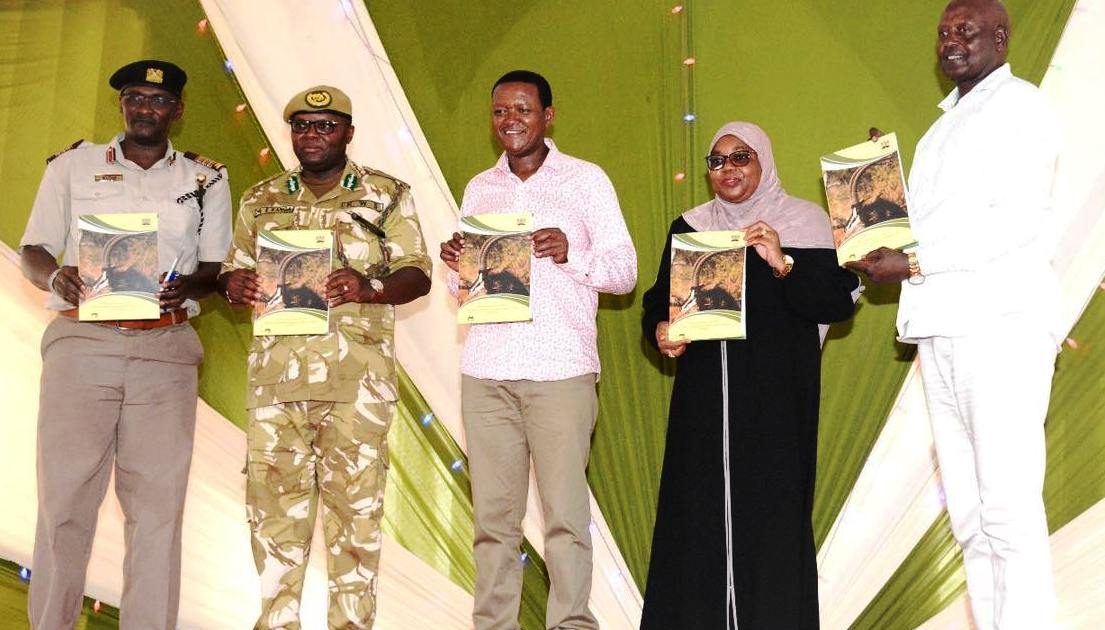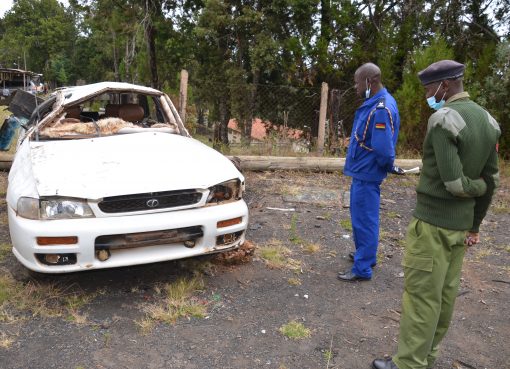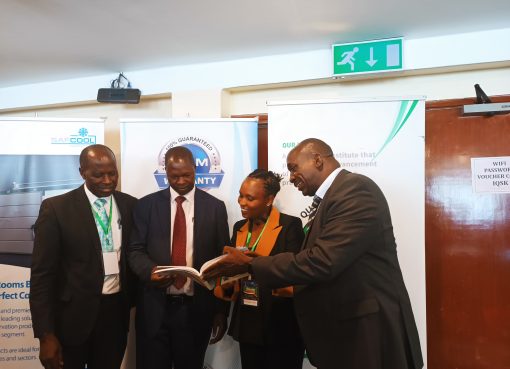The government will spend Sh 600 million to install electric fences and watchtowers around national game parks to mitigate human-wildlife conflict.
Tourism and Wildlife CS Dr. Alfred Mutua says the government is planning to scale up wildlife conservancy electrified wire fences in areas prone to human-animal conflicts.
An electric fence is a barrier that uses electric shocks to deter people and animals from crossing a boundary.
Dr. Mutua specifically noted that human-wildlife conflict remains a big threat to conservation efforts, especially in areas surrounding the national reserves.
The CS said wild animals in national parks invade community lands during drought seasons in search of water, while people drive their livestock into the parks in search of pasture.
Dr. Mutua said the mitigation measures will include improving electric fences, constructing water dams, ongoing awareness creation and restocking herbivores to reduce predation.
“Constructing electric fences will go a long way in solving the human-wildlife conflict as it will help stop the wild animals from leaving their natural habitats and protect lives and crops,” said Mutua.
He went on ‘the electric wire fence will be effective in diverting the animals from attacking people, their livestock and farms’.
The idea is that when the wires touch an animal such as an elephant on the soft flesh of its chest or its trunk, delivering a shock, it turns and returns to the park.
Dr. Mutua says fencing national parks and conservancies will mitigate human-wildlife conflict and ensure the safety of both wildlife and communities.
He says it’s hoped that the electric fences around the game parks will deter wild animals from straying into neighbouring communities in search of water and pasture especially during drought seasons.
“The Kenya Wildlife Service will spend Sh.300 million in the first phase of the electric fencing project and a further Sh.300 million will be used in the second phase to end the agony of people losing their crops and lives to wild animals,” said Dr. Mutua.
He says the phenomenon of human-wildlife conflict has been escalating because people have slowly been extending their cultivating land into the areas reserved for wild animals resulting in animals such as elephants and buffaloes crossing from parks to the farmlands and destroying crops.
The CS says the government will soon launch payment of millions of shillings as compensation to family members killed, injured and their property destroyed by wild animals across the country.
Dr. Mutua spoke when he presided over the annual World Wildlife Day celebrations at Shimba Hills National Reserve in Kwale County.
Mutua emphasized the importance of collective and individual efforts in preserving the country’s rich wildlife, highlighting its intrinsic value and economic benefits.
The theme for this year’s World Wildlife Day is ‘Connecting people and the planet: Exploring digital innovation in wildlife conservation.
The event was also graced by Kwale County Governor Fatuma Achani, KWS Director General Dr. Erustus Kanga, Chairman KWS Board of Trustees Lt. Gen (Rtd) Walter Kaiptanon and Kwale County Commissioner Stephen Orinde.
Key events during the celebrations included the launch of the Sable Antelope Action Plan (2022-2031) and the commissioning of the Diani-Chale Marine National Reserve.
Kwale County is home to Sable antelopes which are critically endangered and solely found in Shimba Hills National Reserve.
The CS says the Sable antelope population has been facing threats such as poaching and predation, leading to a significant reduction in numbers.
Dr. Mutua said his ministry is committed to maintaining good human-animal relations and urged communities neighbouring game reserves to stop poaching.
He said Kenya’s wildlife conservation efforts are on the right track revealing that conservationists from South Sudan and Angola were in the country recently to benchmark on the steady progress in conservation practices.
He underscored the increasing trend of devolving conservation efforts to local communities in wildlife-rich areas and aiming to involve them in preserving their natural surroundings.
Mutua says his ministry will work closely with the Kwale county government and tourism stakeholders in embarking on marketing initiatives for the Shimba Hills region to showcase its natural beauty and biodiversity, further bolstering conservation efforts and tourism development.
Dr. Mutua at the same time stressed the necessity of ensuring that all KWS airstrips are fully operational and well-maintained to facilitate efficient wildlife management and tourism activities across the country.
On her part, Governor Achani says the devolved government will work closely with KWS in constructing dams, boreholes and water pans in areas mostly affected by human wildlife conflicts.
“We hope the water reservoirs in strategic areas will mitigate the effects of the drought and help curb human-wildlife conflict around the national parks,” she said.
The governor welcomed the erection of electric fences around game reserves saying it was a step in the right direction that will improve the security of the people and their property from animal attacks.
By Hussein Abdullahi




